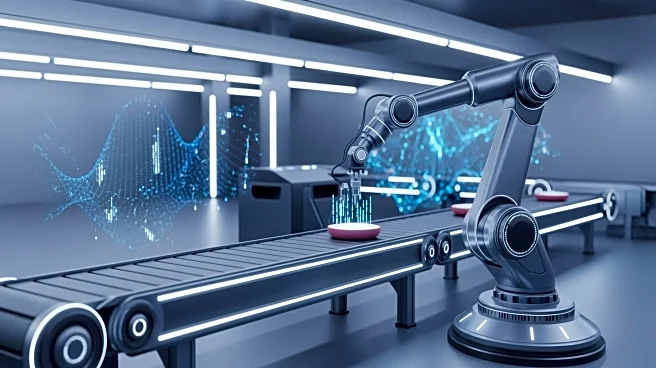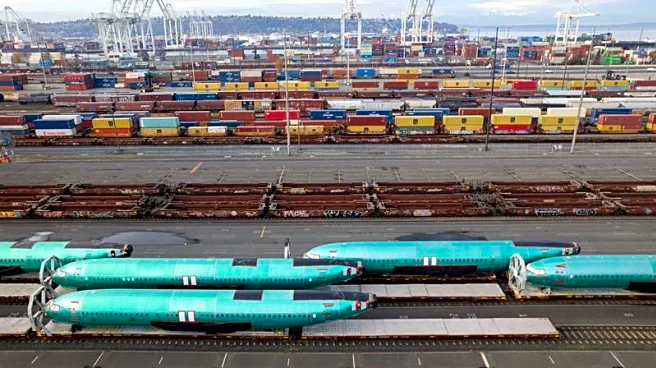What's Happening?
Manufacturers are increasingly adopting AI technologies to address the growing demand for customized and rapidly produced goods. The industry faces challenges such as supply chain disruptions, fluctuating
consumer demands, and labor shortages, all exacerbated by geopolitical issues and climate change. AI is being utilized to streamline processes, enhance quality control, and optimize resource allocation. Platforms like Xometry are leading this transformation by providing AI-driven solutions that connect businesses with vetted suppliers, enabling rapid design iterations and efficient procurement processes. The UK government is investing heavily in advanced manufacturing innovation, aiming to accelerate automation and technology adoption.
Why It's Important?
The integration of AI in manufacturing is crucial for maintaining competitiveness in a rapidly changing global market. By leveraging AI, manufacturers can improve efficiency, reduce costs, and enhance decision-making capabilities. This technological shift is expected to generate significant economic benefits, with AI innovation projected to add substantial productivity gains. The ability to quickly adapt to supply chain challenges and fluctuating demands is vital for manufacturers to remain profitable. Additionally, AI-driven platforms help bridge talent gaps, providing smaller companies with the tools to compete with larger industry players. The focus on sustainability and supply chain visibility is also essential for meeting environmental targets and maintaining compliance.
What's Next?
Manufacturers are likely to continue investing in AI technologies to further enhance supply chain agility and operational efficiency. The trend of reshoring facilities closer to end consumers is expected to grow, as companies seek to mitigate risks associated with global supply chain disruptions. AI platforms will play a pivotal role in strategic sourcing and project management, enabling businesses to synchronize complex processes and improve collaboration across departments. As AI becomes more embedded in manufacturing operations, companies will need to focus on nurturing digital skills and technical talent to fully leverage these technologies.
Beyond the Headlines
The adoption of AI in manufacturing raises ethical and cultural considerations, particularly regarding workforce displacement and the need for reskilling. As AI takes on more roles traditionally held by humans, there is a growing need to address the social implications of automation. Furthermore, the emphasis on sustainability and environmental impact highlights the importance of responsible sourcing and transparent reporting. Manufacturers must balance technological advancements with ethical practices to ensure long-term industry growth and societal benefits.











